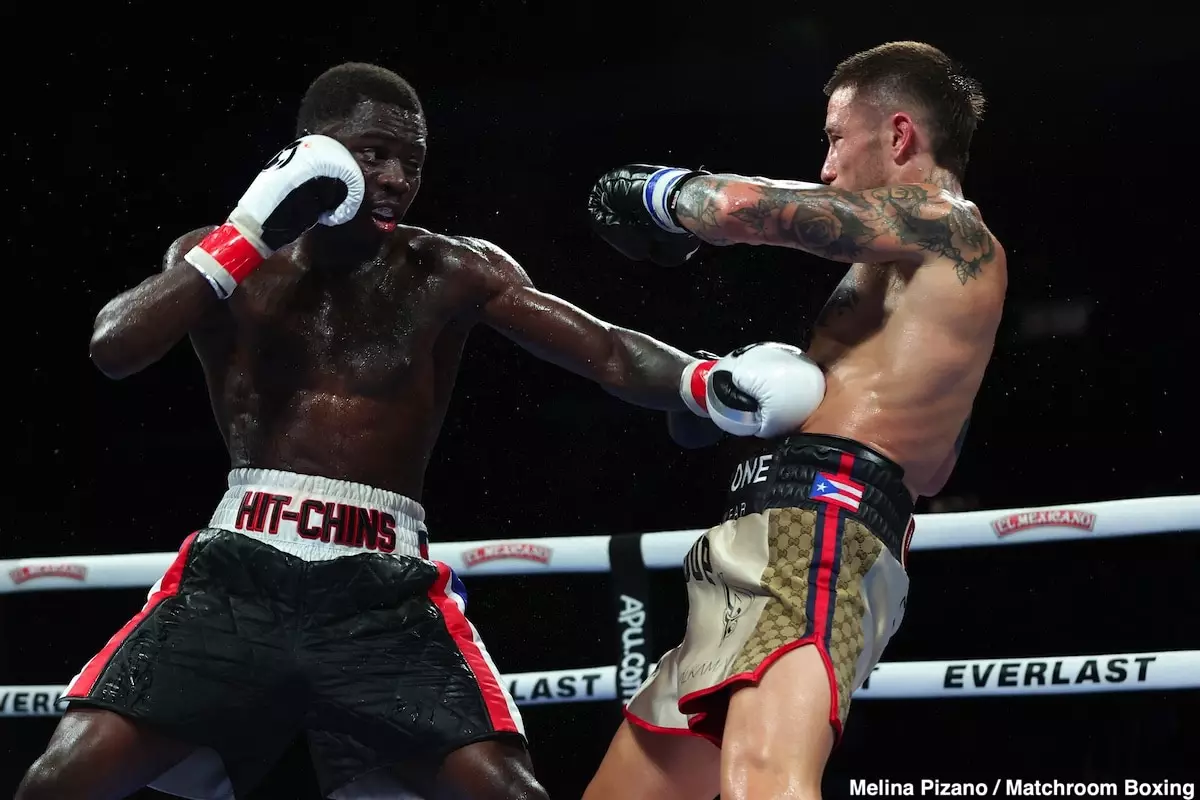The world of boxing is no stranger to chaos, both in the ring and in the judging booths. Recently, a notable bout transpired that not only crowned a new champion but also reignited discussions about judging integrity within the sport. This article explores the highs and lows of the match featuring Richardson Hitchins and Liam Paro, along with the surrounding controversy that has left fans and experts alike questioning the validity of official scorecards.
In a highly anticipated matchup for the IBF 140-pound title, Richardson Hitchins from Brooklyn faced off against Liam Paro of Australia. The fight culminated in a dramatic split decision victory for Hitchins, with two judges scoring the bout 116-112 in his favor, while an inexplicable dissenting scorecard of 117-111 awarded the match to Paro. This anomaly sparked immediate outrage and skepticism throughout the boxing community.
As the fight unfolded, it became evident that both fighters had distinct strategies. Paro, a southpaw, initially dominated the early rounds, effectively using his reach and agility to keep Hitchins at bay. However, the tides turned dramatically in the middle rounds as Hitchins found his rhythm, responding to advice from his corner to increase his aggression. His determination to seize victory transformed the momentum of the fight and led to a clear display of dominance as both boxers exchanged powerful blows.
The fifth round marked a crucial turning point; both fighters sustained cuts, symbolizing the fight’s intensity. Hitchins’ jab became a pivotal weapon in the latter stages of the match, frustrating Paro and inhibiting his ability to maneuver effectively. Fans watching from ringside could sense that Hitchins was not just fighting for a title but was also determined to erase any doubt about his capacity as a champion. The final moments were electrifying, with the crowd on their feet, fully invested in the outcome.
Yet, as is often the case in boxing, the outcome became overshadowed by the contentious scorecards. The unusual 117-111 score in favor of Paro quickly became the focal point of post-fight discussions. Prominent commentators and analysts condemned the decision, labeling it as “unfathomable.” Such extreme discrepancies in scoring have marred the integrity of the sport for years, raising questions about the accountability of judges and their decision-making processes.
Judging in boxing has a long history of criticism, and this incident only serves to highlight the ongoing problem. The reputation of judges can heavily impact a fighter’s career trajectory and the overall perception of fairness within the sport. This incident has drawn parallels to infamous scorecards in boxing history, such as the C.J. Ross 114-114 card during the Floyd Mayweather and Canelo Alvarez fight, which is still discussed among fans and analysts today.
Indeed, the reaction from fellow fighters and commentators has been a mixture of disbelief and anger. Shakur Stevenson, a prominent fighter himself, even took to social media to call for accountability, stating that the judge should never oversee another match. Such sentiments resonate deeply within the boxing community, where the legitimacy of the sport is built on fair competition and honorable officiating.
The struggle for consistency and justice in boxing cannot be understated. With the right man ultimately crowned champion, discussions surrounding Nelson Vazquez—the judge responsible for the controversial scorecard—underscore a pressing need for reform in how judges are selected and held accountable. There is a growing consensus that without systematic changes in scoring procedures, the sport will continue to face scrutiny and skepticism.
As Richardson Hitchins celebrates his victory and adjusts to life as a champion, the questions remain: How will the boxing community address this incident? And more importantly, when will it take the necessary steps to ensure fair representations of fights moving forward? The challenges are daunting, but the integrity of the sport relies on rigorous scrutiny and reform in the coming years. As fans, analysts, and fighters look ahead, the hope is for a clearer path for boxing—one that prioritizes genuine competition over mismatched scorecards.


Leave a Reply